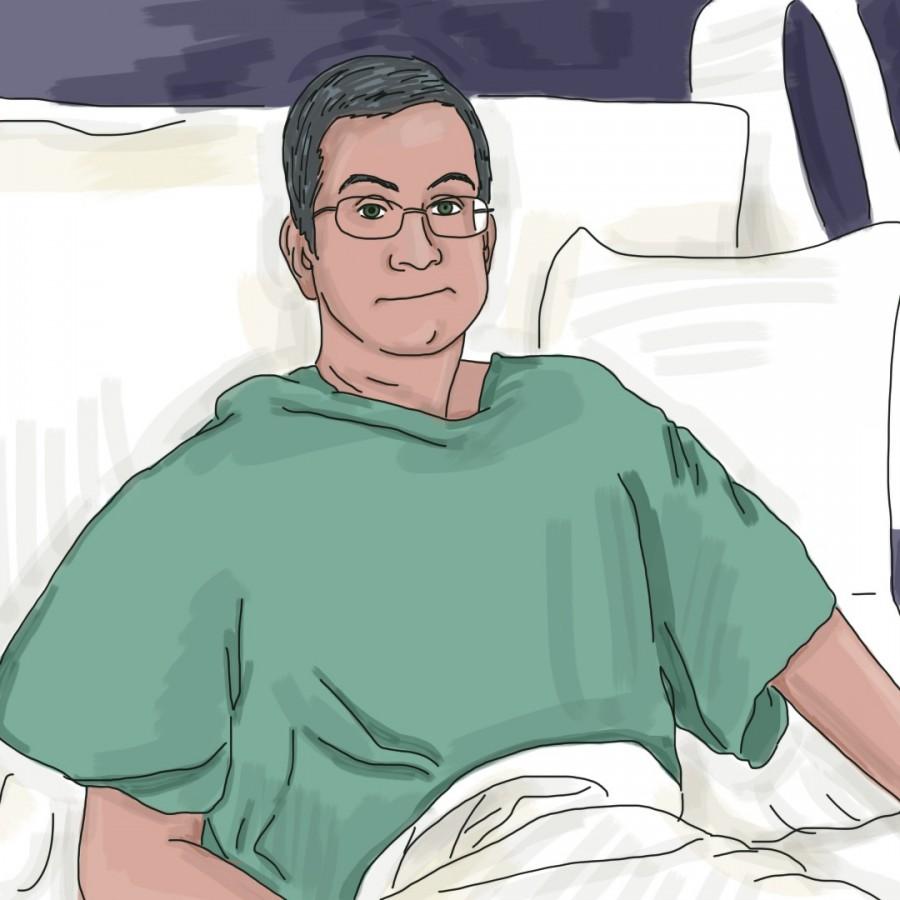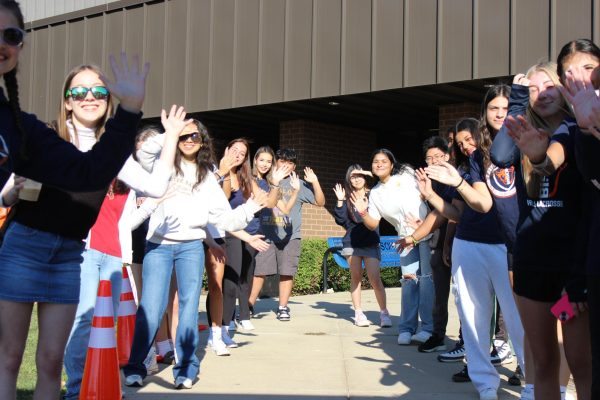A teacher to some, an inspiration to all
In Journalism, reporters are limited to giving only the facts. Incorporating personal opinion into an article is considered inappropriate and biased, crossing the line of reporting between what the truth is and what the writer thinks the truth should be.
As I sat here for the first time, beginning to write this introduction, I found myself having difficulties separating my own admiration and respect for David Fuglestad from the facts. Technically, yes, he is a science teacher here at BG. But that simply doesn’t do this amazing man justice.
At a loss, I turned to the Charger adviser Stefanie McCleish. I told her that there wasn’t a way to truly capture Fuglestad’s optimistic, genuine, kind hearted, funny and goofy essence without directly saying it. Her unprompted, immediate response?
“You can write that. It isn’t an opinion, it’s a fact. Everyone knows that it’s true.”
Who else could have garnered such a complementary, yet perfectly-fitting, response? Fuglestad didn’t need a tragic accident for people to appreciate him.
Every day before and every day after that life-changing accident, people continue to appreciate Fuglestad as an amazing teacher and human because his unwaveringly-positive presence changes the lives of anyone he comes into contact with.
As two friends and I (only semi-jokingly) remarked on the train ride to visit him at Northwestern Memorial Hospital, “If Fugleanity or Fugle-ism was a religion, it would center around constant gratitude, a geekily-hilarious sense of humor and the ability to make anyone’s day. Not only would I follow it, I would be a disciple.”
On Aug. 2, 2014, many components of Fuglestad’s life were changed, for what some doctors said might be forever. But if anyone can conquer this uphill battle through his determination to succeed for both himself and those who care about him, it would be him. Fuglestad is the kind of person that, when life gives him lemons, throws them into the air and tries to juggle.
Q: What happened on the day of the accident?
A: It was a beautiful morning for a ride. I was riding along with very minimal traffic conditions at about 30 mph when a car suddenly pulled out in front of me. The police and ambulance crew was on the scene within minutes, they figured out I had a some broken ribs, a broken toe and I fractured three vertebrate.
Q: What medical procedures have you had since then? When were you able to be discharged from the hospital?
A: The neurosurgeon operated and fused six vertebrate together: T4–T10 with rods and screws two days after the accident occured. I spent a week recovering at Northwestern and then was transferred to a rehabilitation hospital.
(Fuglestad has since been discharged and is undergoing outpatient rehabilitation, as of Saturday.)
Q: What has been your main source of motivation throughout this? Any advice or changed thoughts on staying optimistic?
A: I have always been someone who tries to look at the bright side of things, and be thankful for what I have. We all have limitations in life, and have to do the best with what we are given. So my basic philosophy is to keep going. That being said, it is still difficult at times because the things that I found effortless in the past to accomplish now require much more work.
When I get discouraged I think about all the people who are supporting me and praying for me. The love and support that I have felt from my family, friends, the staff and students here at school, and even from some complete strangers has helped me keep going through all of this. Honestly, I have felt so much love from many people at BG. It is overwhelming how nice and caring so many people have been to me. It is truly amazing, and I am very grateful.
Q: Where are you now, health–wise? What are some aspects of your life that are much more different than they were before?
A: Well I am paralyzed from the chest down, so many things are different now. It is going to change the things that I am able to do, and will also change how I do the basic life tasks. I have full use of my arms, so that is good.
Q: What kind of therapy is involved in your rehabilitation treatment? What are some aspects of your life that are much different than they were before?
A: My therapy consists of both physical and occupational therapy. Pretty much everything is going to be different in regard to my daily personal care. In terms of mobility, instead of walking I will be getting around in a wheel chair, and the things I do for recreation will change in large part too. Some things will stay the same, but will be modified because of my paralysis. For instance, I will still be able to ride a bicycle but it will be what is known as a hand bike. A hand bike has three wheels instead of two and is powered by your hands on “pedals” that are out in front of you as you sit on the bike. They kind of look like a recumbent bike where the rider is sitting down low. The brakes and shifting are also done with the hands. So I will still be able to enjoy bike riding, it will just be modified.
Q: What are your plans for the future? Do you have any long-term goals? Do you plan to continue teaching or coaching again this year?
A: My plans are to get better, so that I can return to school. It is my hope that I will be able to do that sometime this year. It could be as early as second semester, but I am completely guessing at this point. It all depends on how therapy goes. I hope that I will feel well enough to return to both teaching and coaching as before the accident.






